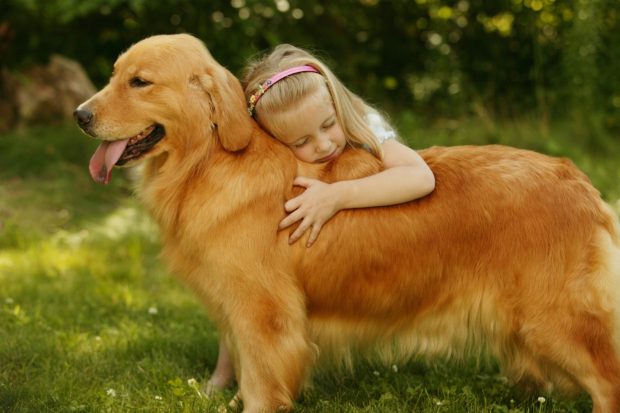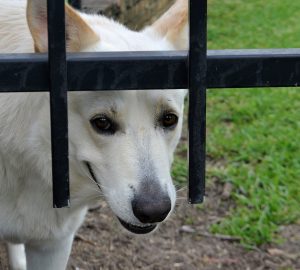The family dog holds a beloved spot in the popular imagination. These are often dogs that can be close companions for children and parents alike. Yet not every type of dog is well-suited for a family lifestyle. If you need help deciding on a dog breed for your family, be sure to keep reading, as we will highlight all the desirable traits to look for in a family dog as well as five of our favorite breeds below.

What Makes a Good Family Dog Breed?
There is a lot to consider when choosing a family dog, from temperament to activity level, it can quickly become overwhelming to think about. This is why looking at your family’s needs in a dog is so essential.
When deciding on a dog breed for your family, it can be helpful to keep the following criteria in mind:
- Good with kids: This is a primary concern for most families, no one wants the dog to bite little Tommy. A prime example of why having a dog that can keep its cool around little ones is an absolute must.
- Trainability: Intelligence as measured by trainability will be something that families will want to look out for when considering dog breeds. Dogs that are easier to train will be easier to care for once the whole family gets on the same page.
- Good with other pets: If your family already has a pet, or will likely get another, choosing a breed that can handle other animals well will go a long way towards getting all the animals to peacefully cohabitate under one roof.
- Grooming and shedding concerns: This can be a relatively easy decision to make based on if anyone in the family has an allergy to pet dander. If so, a hypoallergenic breed may be the way to go.
- Activity level: How active of a dog do you want? One that can go on morning runs with mom and play with kids in the backyard after school? Or is a dog that will be happy in a smaller living space and less activity more important for your family’s needs? Making sure your family’s lifestyle matches up with your prospective pup’s energy level can help make sure they are happy in the long run.
- Size: Like the thoughts on activity levels above, make sure that the dog breed you want will be suitable for your space. And remember, puppies can grow to be much larger adult dogs.
Beagle
Beagles are delightful dogs for young families as they don’t require too much activity and can be just as happy napping by themselves as they are at the center of attention. More diminutive in nature, this breed is known for its excellent tracking skills that can often turn even walks around the block into creature stalking missions.
Bernedoodle
The Bernedoodle is a hybrid breed of dog that mixes two breeds—the Bernese Mountain Dog and a poodle—that has become quite popular in recent years as a family dog. These pups bring the best of both lineages as they are often as intelligent as a poodle with the size and sporting nature of the larger Bernese breed.
While extremely adorable, it can often be quite difficult to find Bernedoodle puppies for sale. Yet getting one of these dogs young is essential in making sure that they are socialized properly so that they can be suitable family dogs.
Bulldog
Bulldogs are another good choice for those that want a family dog that they don’t have to plan their lives around. Bulldogs are happy with a moderate amount of stimulation and have little grooming concerns other than regular brushing of their teeth. In addition, most Bulldogs have minimal shedding and, when properly introduced, they get along well with other pets such as cats.
Golden Retriever
It turns out, if Air Bud was great at sports for any reason, it was probably thanks to the yellow dog’s golden retriever breeding. And it shows how these sporting dogs can keep up with active families while still being great companions for little ones and other pets.
Pug
Pugs are instantly recognizable with their flat faces and wheezy disposition. And while many dog owners recognize the bread, not many are aware of how good they are as a family dog choice. They shed minimally, are friendly around pets and people, and generally can entertain themselves. One aspect to consider is that Pugs usually do best with a partner, as they enjoy the companionship another dog can provide.
Make Choosing the Dog a Family Decision
Finally, there is one last piece of advice worth giving. When choosing your family dog, make sure to involve all of your family members. Even young children will feel more emboldened to love and care for a dog that they feel responsible for as a stakeholder, and the best way to instill this feeling is to make sure everyone is involved with the decision.
Still have questions about choosing a family dog? Have a breed you think we should know about? Please don’t hesitate to reach out, and, as always, thank you for reading!



